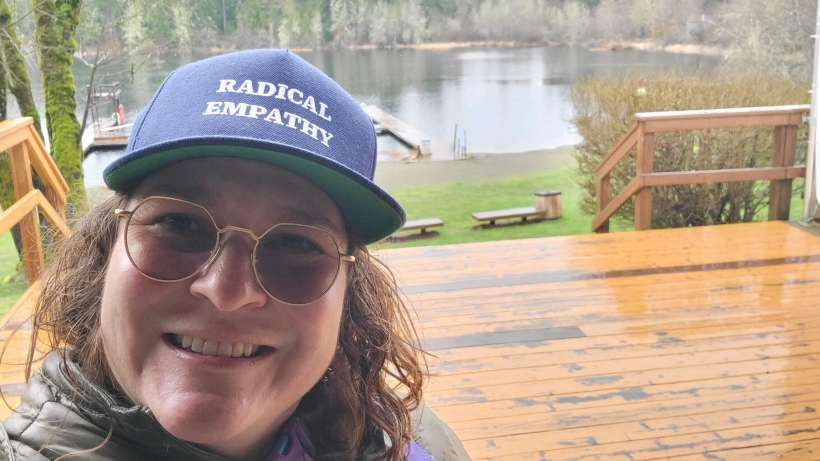I love visiting summer camps; it’s a highlight of every summer. I just visited Camp Solomon Schechter earlier this month, and walking through the gates of Schechter or BB Camp and seeing the vast expanse of nature and the cheerful sounds of joyful kids brings me peace and contentment on a whole other level. Do you know what’s funny about that? I hated being a camper at overnight camp. To clarify, I tolerated most of camp. From 8 a.m. to 8 p.m. I was a pretty happy camper. It’s just that by the end of the day, I was peopled out. Back in the 80s and 90s, we didn’t understand sensory processing disorders or introversion the way we do today. There was no safe place for me to take refuge when the noise and excitement of camp got too overwhelming for me. So while camp is supposed to be a refuge from the rest of the chaos in our world, it started out for me as its own chaotic space that just left me wanting for quiet.

Yet, this time in my childhood represents one of my most important and treasured experiences because of the lesson it still provides. As a rabbi now, this is a constant reminder to me to hold the balance between the variety of needs our congregants have in order to feel a place of calm. It has often been said that we lead from the place of our own brokenness to create a new wholeness, that is indeed true not only of my own leadership, but of Moses as well.
Parshat Vaetchanan continues with the retelling of the laws here again in the book of Deuteronomy. We also read about God’s persistent refusal to allow Moshe to enter the Land of Israel. The Torah then issues a caution to uphold the mitzvot as the key to building an Israelite society. Moshe then sets three cities of refuge, and we receive probably the most well-known instruction in the Torah, the Shema.
In chapter 4, verses 41-42 the text reads: “Then Moses set aside three cities on the east side of the Jordan to which a manslayer could escape, one who unwittingly slew a fellow without having been hostile to him in the past; he could flee to one of these cities and live.” These verses follow an address but were not directly spoken by Moses; it’s simply narrative. Commentary asks the question “Why would this act be so important to Moses that it interrupts his address to the nation?” The answer is because Moses himself had to flee when he struck a man in Egypt. In other words, as a leader, Moses knows what it is to need a place of refuge to regroup and understands the importance of those places in a society.
Parshat Vaetchanan makes it clear that a place of refuge can look different for each person. What matters is not what or where the place is, but how we can be supportive of the environment that allows for refuge to take place. As we move slowly to the final encampment of the Israelites in the land of Israel, Moses and the Torah give us this message: find your place, find your peace.



